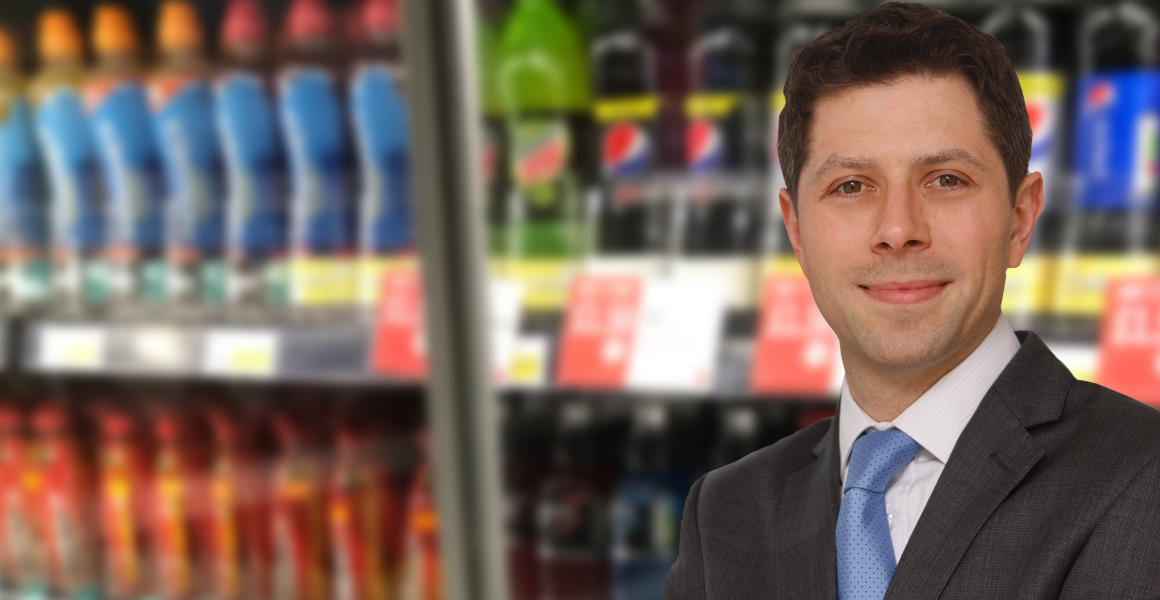Company CV
Company Coca-Cola European Partners (CCEP)
Head of sustainability Nick Brown
Profile CCEP, the world’s largest independent Coca-Cola bottler, is committed to ensuring its packaging is as sustainable as possible.
Latest news CCEP has launched a new integrated marketing campaign that encourages and rewards people for recycling their empty drinks bottles, in the run-up to Recycle Week.
RN What progress have you made on sustainability over the past year?
Nick Brown Last year, we reviewed our progress and this is where our new sustainable packaging plan came from. We have an ambition to make sure all our packaging is collected so there is less litter on the streets.
Three areas link together our actions. This includes ensuring our packaging is sustainable. Every one of our bottles is 100% recyclable and contains 25% recycled plastic with an aim to double this by 2020.
We use the power of our brands and customer relationships to encourage more people to recycle – ahead of National Recycle Week (24-30 September). We have launched a new digital campaign called ‘#Coke Dunks’ and a TV advert entitled ‘Across the Tracks’ to encourage consumers to recycle and champion better collection systems.
RN How is the sector progressing towards better sustainability?
NB It’s great to see lots of other companies in the industry stepping up, but there’s a lot more to be done. There are things individual companies can do, but we can tackle shared challenges if we all work together on this.
RN How does your work contribute to the wider retail industry?
NB The beverage industry has done a lot to lead on sustainable packaging, and we can learn from that. However, a challenge we need to tackle is preventing recycled products from being littered on the go.
This is an area where suppliers and retailers can collaborate to improve collection. We can help consumers understand what to do with their packaging. This is why we are supporting the development of a well-designed deposit return scheme (DRS).
RN How vital a role can independents play in your work to achieve a more sustainable future?
NB Independent retailers are uniquely positioned as places where lots of shoppers go to buy products they want to consume on the go.
They also have a unique footprint in local communities, so they can help with local solutions for challenges – this includes getting behind litter picks such as the Great British Spring Clean run by Keep Britain Tidy.
RN Retailers want clarification on shop size, hygiene and security for DRS. What can you tell them?
NB DRS is a major change for retailers and local authorities, so we have spent time over the past 18 months looking at the schemes we are involved with globally to work out what makes them successful.
What’s clear is that schemes only work if it’s easy for consumers to have the opportunity to return their packaging to convenient return points.
A single not-for-profit organisation should be set up ensuring retailers get paid for providing
collection services.
There is a live consultation in Scotland and a plan for one to be launched in England.
This is an important time for all parties involved to put forward what they think are the right criteria for the scheme, because what gets built over the next couple of years is likely to be in place for a long time.
We must take this opportunity to design something that works for everyone.
RN A major concern with DRS is with collection queries. Do you have an update on when and how this process would take place?
NB There is a range of different collection types used around the world. Larger stores might go for automated equipment, and much smaller stores might use a manual solution; there is a real balance in making sure the collection point design matches the outlet.
RN Can you tell us what profit margin retailers would receive from DRS in the UK?
NB It’s important that retailers are paid a fair handling fee for running collection points, which includes a contribution to any reverse-vending machine. The details of the fee would be part of the design scheme.
RN What do the next steps of the scheme look like?
NB It very much depends on the political process once the consultations are closed. There will be a period of time where the government looks at how it wants to structure DRS, and then detailed design work will be done with the industry.
Read similar: Retailers should educate customers on plastic



Comments
This article doesn't have any comments yet, be the first!